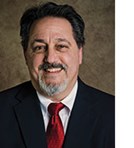Rusty Benson
AFA Journal associate editor
September 2015 – Who are the supporters of American Family Association? United in Purpose and its research division, American Culture and Faith Institute, conducted an online survey last fall to answer that question.
The survey compared answers from AFA supporters to those of two other categories of adults: 1) active religious conservatives (ARCs), those who are associated with a nonprofit group active in the political/cultural arena; and 2) the general public.
Drawing on nearly two decades at AFA as an AFA Journal writer and radio host, executive vice president Ed Vitagliano reflected on the survey findings.
AFA Journal: What do you see in the study that confirms or corrects your thinking about our ministry partners?
Ed Vitagliano: First, the finding quantified things we already know about AFA partners. A few examples: they are theologically and socially conservative; they are ardent churchgoers; they are mostly white; and for the most part, they live in the South or Midwest.
What some might find surprising is that AFA supporters are more educated – 60% have a college degree, and a third have attended graduate school – and have higher household incomes than either ARCs or the general public.
These are AFA’s ground troops – people who believe the Bible and try to pattern their private and public lives in a manner pleasing to God. These folks are also doers, according to the study. For example, only 2% say they were not registered to vote in last year’s midterm elections.
AFAJ: So that explains why these people are attracted to AFA, right?
EV: Yes. These energetic Christians fit with AFA’s emphasis on informing, equipping, and motivating citizens to be active in our culture. How blessed we have been to have them as partners. Many have been with us from the beginning in 1977.
AFAJ: But the survey also shows that only 2% of supporters are under 30. Isn’t that of concern?
EV: Yes. The challenge facing AFA is how to connect with those under the age of 30, which amounts to 22% of all adults in this country. Even among those identified as ARCs, 11% are in this younger age bracket. That’s why AFA leadership is challenged to communicate our message in ways that make sense to young Christian Americans.
I’m convinced that there are many younger Christians who take their walk with Christ very seriously. And although they have grown up in a culture different from their parents, they see the need to restore a sense of biblical values to the society. In that regard, they can learn from AFA, and AFA can learn from them. (See “Engage” article.)
The same can be said of reaching out to a more racially diverse category of potential constituents. Typical AFA supporters are white – 92%. That’s quite a bit higher than ARC adults (77%). But the gap between AFA supporters and the percentage of the general public that is white (63%) is enormous.
 AFAJ: Why the disparity?
AFAJ: Why the disparity?
EV: The perception has long been that black Americans are generally conservative on the social issues that AFA focuses on. However, white Christian social conservatives are typically also fiscally conservative and demand a smaller federal government, a perspective borne out by the survey. Such economic views are not going to find a warm reception in the black Christian community as a whole.
Finding a way to gain allies in the black church on social issues while maintaining disparate economic views is, and will remain, a challenge. However, AFA’s relatively new outreach to the black community – the Urban Family radio network – is one way in which the ministry hopes to bridge that gap. 
From the survey
→ 66% of AFA supporters describe themselves as “very conservative” on fiscal issues. 87% say they are “very conservative” on social issues. Both figures are notably higher than among the aggregate base of ARCs (56% and 73%, respectively).
→ 89% describe themselves as theologically conservative.
→ 85% attend church services every week – higher than the ARC average (76%) and more than double the general public (37%).